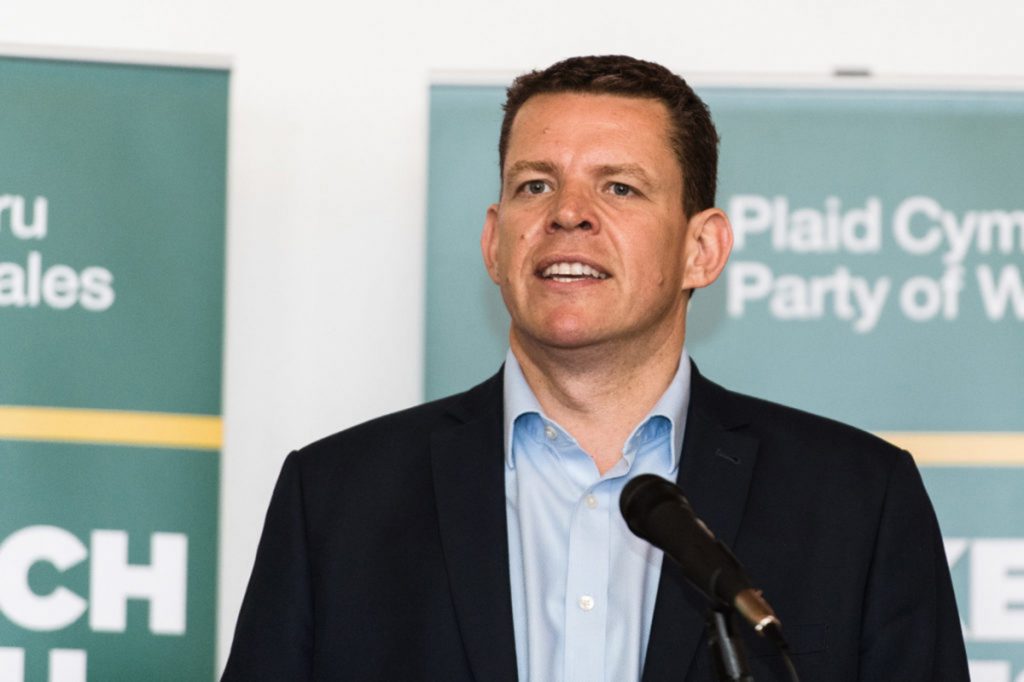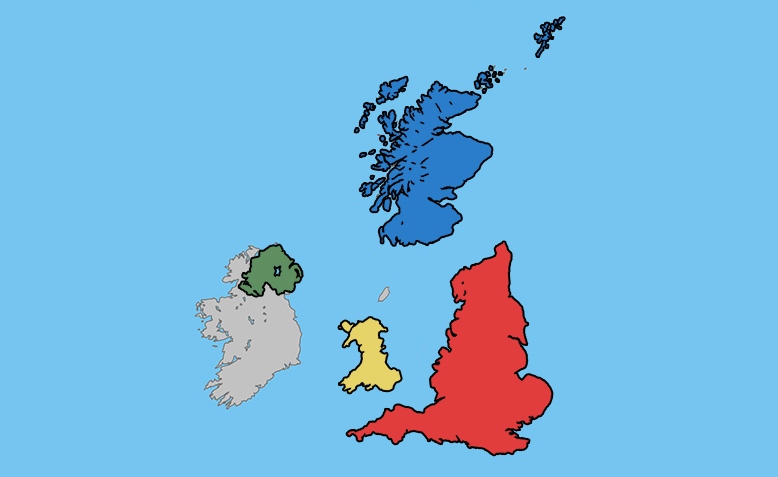THE WELSH Government published a plan it claims will ‘strengthen the UK’s fragile Union on Monday, June 28.
Launching the plan, First Minister Mark Drakeford said relationships within the UK need to be reset because “too often we see the UK Government act in an aggressively unilateralist way.”
FAMILIARITY BREEDS ‘SO WHAT?’

Welsh Conservative Senedd leader Andrew RT Davies MS responded: “We’ve been through an incredibly difficult period and what people want to hear from governments and ministers of all stripes is how they’re going to protect jobs, secure new opportunities and deliver a clear plan for Wales’ economic recovery.
“There might well be a time and place for such discussions, but this is not it.
“The sole priority for Labour ministers should be Wales’ economic future – not never-ending debates on devolution – and this is an unwelcome and unnecessary sideshow at such a delicate period in our recovery.”
Mr Davies has a point; however, the Welsh Government – at no stage – says this policy is its primary consideration. It proposes no more than asking the Welsh people how they see their future within (or outside) the UK.
Legislation isn’t part of the process. Perhaps Andrew RT Davies doesn’t believe in consulting with the people about important issues. No. That can’t be right. Can it?
Taking the December 2019 Conservative Manifesto at its word, of course, ‘might’ does not come into it, either. Mr Davies will know Boris Johnson promised a constitutional commission. Mr Johnson’s dependability and honesty are legendary – mythic, almost.
Equally predictably, the Welsh Government faced criticism from Plaid Cymru Deputy Leader, Rhun ap Iorwerth MS.
“Past experience shows us clearly that UK Government, be it red or blue, will never put Wales first. Labour’s thinking on the Union appears to be stuck in the past.
“The UK is more than fragile – it is failing utterly to deliver economic and social justice for the people of Wales.
“The only way of achieving this is by putting Wales’s future in Wales’s hands, free from Westminster’s chaos and incompetence.
“It’s why support for independence is at an all-time high and growing. It’s time for Labour in Wales to stop defending the indefensible.”
Predictable responses from both opposition parties neither of which addresses the Welsh Government’s approach nor the well-recorded desire of the Welsh electorate to have greater autonomy within the UK.
LABOUR PLAYS IT SAFE

Independence is strictly a minority interest in Welsh politics. The outcomes of elections do not lie.
The way Yes Cymru is going, it’s going to be an even smaller minority interest as its Erewhon Cultural Revolution enthuses the people with interpretative dance and face-painting workshops.
Labour and the Conservatives have the same constitutional goal – to preserve the Union of the United Kingdom.
The Welsh Government’s actual proposals do not amount to much at all.
There’s a lot of windy rhetoric but what it boils down to is a set of straightforward propositions.
- The future of the United Kingdom is at risk.
- Westminster’s actions risk pulling the Union apart.
- Labour thinks the UK is ‘a good thing‘ and wants to work within it.
- Please can we have a grown-up conversation about the UK’s future and the operation of devolution within the whole of the UK?
The extra power Wales seeks, which exercises Andrew RT Davies, control over policing and justice, is already devolved to Scotland. Does he think the Welsh too thick to exercise powers a Conservative government devolved to the Scots?
REFORM SHOULD ALREADY BE HAPPENING

Reforming the UK is not a new idea.
It’s not even an idea that originates with the UK’s devolved nations.
It’s a Conservative one.
Relations between the UK’s four parliaments are supposed to be covered by a Joint Ministerial Committee (JMC) established by the UK Government as long ago as 2010.
In 2017, the UK Government and devolved administrations agreed on ‘a common framework’ about intergovernmental relations.
The UK government committed to frameworks to “respect the devolution settlements” that would be “based on established conventions and practices”.
The UK and devolved governments also agreed that the overall effect will deliver “a significant increase in decision-making powers for the devolved administrations”. No existing devolved policy power would be taken away.
A master of detail, Boris Johnson knows this because he was a member of the Conservative Government that reached that agreement.
The following year, the UK and devolved governments launched a review of intergovernmental relations.
The review is supposed to underpin the UK–devolved relationship, dispute resolution processes, the future of the JMC system, and the role of the devolved governments in future international negotiations.
In July 2019, draft principles on intergovernmental relations were published. But there has been no other public update on the progress of the review.
However, since he became Prime Minister in 2019, Boris Johnson has not convened any meetings of the JMC. He shows little appetite for working with any devolved nation’s parliament on any topic, no matter how trivial.
The Prime Minister and his ministers have also shown scant regard for the agreed common framework.
CHANGING THE WAY THE UNION WORKS

First Minister Mark Drakeford said: “Wales’s future is best served by having strong devolution – so decisions about Wales are made in Wales – and by being an equal partner in a strong and revitalised United Kingdom.
“For this to happen, the way the Union works must change. And the need for change is urgent – the Union has never been this fragile. If matters continue in their current vein, the case for the break-up of the UK will only increase.
“Too often we see the UK Government act in an aggressively unilateral way, claiming to act on behalf of the whole UK, but without regard for the status of the nations and the democratic mandates of their Government.
“We see muscular unionism, instead of working towards a genuinely constructive and collaborative relationship between the governments of the UK.”
Mick Antoniw, Counsel General and Minister for Constitution said: “Constitutional reform is a necessity. The framework within which decisions are made directly affects the services we access and the communities we live in. Getting this framework right is essential.
“We want to hear from as many people as possible as we start a national conversation about our future in Wales and our future relationships with the rest of the UK.
WORDGAMES FROM HART

Westminster’s response to concerns expressed by the Welsh Government about its power grab from devolved administrations is to play semantic games about what ‘devolution’ means.
In an interview with Theo Davies-Lewis in The National, Simon Hart said: “If you look up the Oxford English Dictionary, ‘devolution’ will tell you that it’s decision making at the nearest point to those who it affects. For us, that’s local authorities.”
Mr Hart’s words are both fatuous and intentionally misleading.
In his accompanying column, Theo Davies-Lewis – a Conservative – makes that point clear.
In the legislation creating the devolved governments, approved by repeated UK Governments, including Conservative ones during which Mr Hart backed devolution to national parliaments, the term ‘devolution’ has a specific meaning. Specific agreements and conventions govern the devolution settlement.
Mr Hart is like Humpty-Dumpty in Lewis Carroll’s Through the Looking Glass.
“When I use a word,” Humpty Dumpty said, in rather a scornful tone, “it means just what I choose it to mean—neither more nor less.”
“The question is,” said Alice, “whether you can make words mean so many different things.”
“The question is,” said Humpty Dumpty, “which is to be master—that’s all.”
For example, more thoughtful Conservative politicians, like the former Conservative MS David Melding, have always been alert to the risk that Simon Hart’s and the UK Government’s ‘muscular unionism’ poses to the UK.
A UNIONIST DILEMMA

Writing in January this year, David Melding pointed out that Mr Johnson’s own Manifesto promised a constitutional commission to work through the tangled web of the UK’s governance and reach a settlement.
Mr Melding was too polite to say so; however, the UK Government’s actions suggest it is one of those promises – like marital fidelity – the Prime Minister and some members of his Cabinet are prepared to let slide.
David Melding continued by presciently setting out the severe problems in Westminster’s approach.
“Proclaiming, marking, and perhaps enhancing the financial advantages of Union is merely repeating Balfour’s mistake of trying to kill Irish nationalism with kindness,” wrote Mr Melding.
“Alternatively, another helping of muscular unionism, like that contained in the Internal Market Act, would be unlikely to win many converts in our world of identity politics”.
And that neatly summarises the dilemma facing the Conservative and Unionist Party.
Conservatism is about making current constitutional arrangements work better and acting where reform is needed. It is not about scrapping constitutional integrity or overturning a constitutional settlement because you don’t like it on ideological grounds.
By acting as he is, Simon Hart is the best recruiting sergeant for those who reject Westminster’s mission creep into areas of devolved policy and funding decisions.
Dismal attempts at playing ‘dictionary definitions’ risk further undermining the relationship between Wales and Westminster.
And not only at a governmental level.
Continuing to tell the Welsh people that ‘Mama knows best’ risks compromising the value and faith the vast majority of Welsh voters’ place in the UK as the best option for their future

















Add Comment